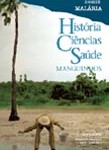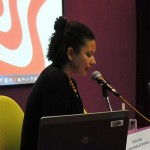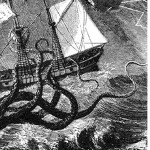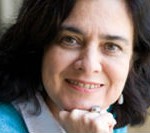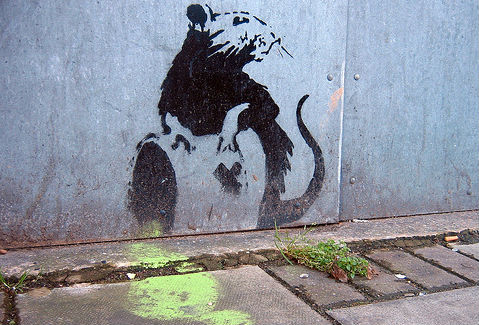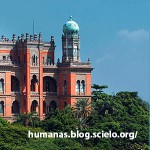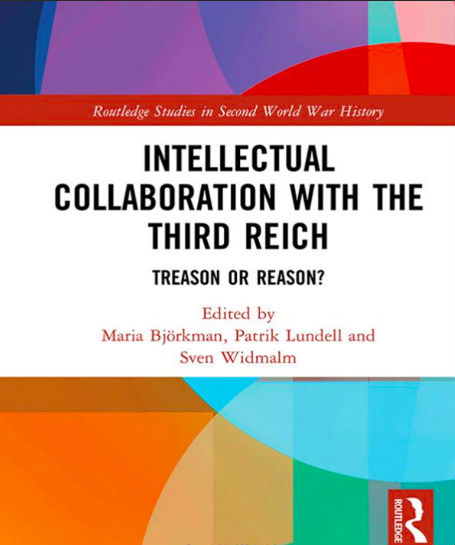May, 2018
Vivian Mannheimer| História Ciências Saúde Manguinhos Blog
The Consortium for the History of Science, Technology and Medicine offers fellowships for researchers interested in the rare books and manuscript collections of its member institutions in the U.S., Canada and UK.

Babak Ashrafi is President of the Consortium for History of Science, Technology and Medicine, which he helped to launch in 2007. Before that, he was Associate Historian at the American Institute of Physics in College Park, Maryland. He holds PhDs in Physics from Stony Brook University and in History of Science from MIT.
Now, these fellowships in the history of medicine and medical humanities will count on the support of the Wellcome Trust for fellows from Brazil, South Africa and India.
The Fellowships will be available in the next round of applications and must be submitted online by June 16, 2018. See how to apply.
We interviewed Dr. Babak Ashrafi, President of the Consortium for History of Science, Technology and Medicine. He talked about the relevance of the Consortium to this field of study and the elements of a successful application.
What is the importance of a consortium for the history of science, technology and medicine? How do the consortium institutions work together?
The Consortium was founded about 10 years ago by 11 Philadelphia institutions. The institutions work together through the Consortium to more effectively promote public and academic understanding of the history of science, technology and medicine.
We provide fellowships to scholars for research in the collections of member institutions; produce events for academics to discuss important publications and each others’ works in progress as well as for the public to provide historical perspectives on contemporary issues; and we produce online resources for teaching, learning and research. Since 2014, the Consortium has grown beyond the Philadelphia area, now comprising 25 institutions across North America and the UK. All our activities are conducted collaboratively.
Librarians and archivists from across the member institutions (as well as scholars from around the world) work together to award fellowships. Public events are held at member institutions. The online resources that we produce are based on materials from member institutions. The Consortium is still relatively new and growing. This year we have our largest class of fellows, a new website, a new initiative for expanding public events, as well as new funding from the Wellcome Trust for fellows from Brazil, South Africa and India.
Overall, could you tell us a bit about the consortium’s rare book collections and manuscripts? How can they be useful for Brazilian researchers of history of medicine, science and technology?
The collections are vast. Some of the member institutions have been collecting since the 18th century — and they continue to add to their collections. We have had fellows use the collections to study topics from 20thC American physics to medieval Chinese natural history and ancient Afghani agriculture (using the records of archeological digs).
In addition to the papers of scientists and doctors and engineers who worked on projects around the world, there are also many records of foundations and businesses with international engagements. Several resources on our website can help in finding details of holdings that might be of use to researchers from Brazil.
One is a cross-institutional catalog search with which one can search nearly five million catalog records for rare books and manuscripts held at 19 of the member institutions (circulating collections are not included in this search). On our site, you can also find direct links to the online catalogs of member institutions as well as contact information for reference librarians to get more detailed information about the collections. Finally, past Consortium fellows have provided research reports about what they found in the collections and how they used them in their research. These reports can help locate additional materials on topics related to the work of past fellows.
Regarding the fellowships, is there any area or topic treated as a priority by the Consortium?
The Consortium does not prioritize any particular topic. Applicants can apply for support for any research topic in the history of science, technology or medicine—broadly construed—using the collections of member institutions. They will have to convince the selection committee that their work has potential for significant contribution to scholarship in the relevant field. For the purposes of funding provided by the Wellcome Trust, which includes extra support for travel from Brazil, topics are restricted to the medical humanities and history of medicine.
Which are the elements that lead to successful applications and projects?
There are two elements of a successful application. First, the application must convince librarians and archivists from member institutions that they will make good use of the collections. The applicants will have to indicate which collections they would like to use.
Librarians and archivists from those institutions will evaluate the applications for how well they use the collections. It might be the case, for example, that the requested materials are available online, or commonly available at many places, or of peripheral relevance to the proposed research.
On the other hand, the requested materials might be rare, or unique, or hard to access, and crucial for the proposed research. Second, they must convince historians that their work will be a significant contribution to scholarship.
In addition to librarians and archivists, scholars from around the world also read the applications. They evaluate the proposed research for its scholarly merit. It might be the case that the topic has been well covered already, and the potential contribution of the proposed research might not be clear.
On the other hand, the proposed project might bring new insight to an old question, or ask new questions, or use archives in a novel way. An applicant should contact reference librarians at the collections they would like to use, and can also contact us for help refining their application.
See in our blog:
Ashrafi, B; Mannheimer, V. Fellowships in the history of medicine for Brazilian researchers – Manguinhos blog, 2017. http://www.revistahcsm.coc.fiocruz.br/english/fellowships-in-the-history-of-medicine-to-brazilian-researchers/
Hiltzik, L.R; Mannheimer, V. A vast collection on Brazilian health and science – Manguinhos blog, 2017. http://www.revistahcsm.coc.fiocruz.br/english/a-vast-collection-on-brazilian-health/
Fellowships for scholars of Brazil, India and South Africa – These fellowships will be for research in history of medicine and in medical humanities using the collections of leading North-American institutions.
Early medicine in the Wellcome library – With expert articles on disease, disability, weelbeing and other subjects, the Wellcome Library website offers information about medicine and health in Europe before 1700.
Open access, internationalization, funding and social media – The symposium “21st century challenges for history of science and history of medicine journals” was held during the 25th ICHST.
“It is crucial to understand the social context of health and disease” – João Rangel de Almeida, of the Wellcome Trust, talks about the role of humanities and social sciences to improve health and about several projects supported by Wellcome in Low-and-Middle-Income-Countries.
Fellowships for scholars of Brazil, India and South Africa – These fellowships will be for research in history of medicine and in medical humanities using the collections of leading North-American institutions.
Fellowships for scholars of Brazil, India and South Africa – These fellowships will be for research in history of medicine and in medical humanities using the collections of leading North-American institutions.
Early medicine in the Wellcome library – With expert articles on disease, disability, weelbeing and other subjects, the Wellcome Library website offers information about medicine and health in Europe before 1700.
“It is crucial to understand the social context of health and disease” – João Rangel de Almeida, of the Wellcome Trust, talks about the role of humanities and social sciences to improve health and about several projects supported by Wellcome in Low-and-Middle-Income-Countries.





